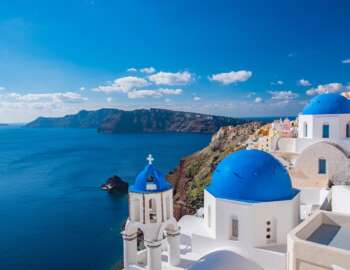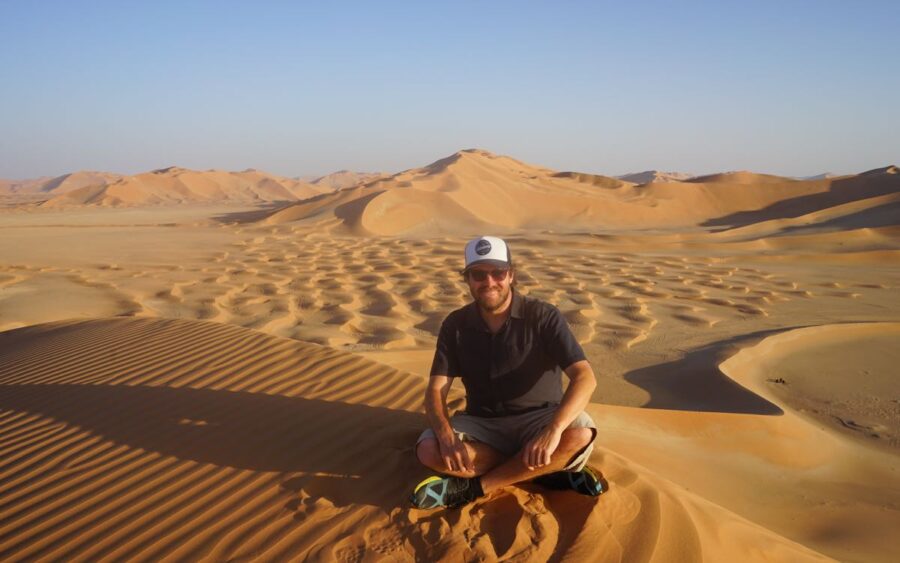These documentaries about Cuba, an island nation in the Caribbean, show its rich history, vibrant culture, and complex political landscape.
These films provide an intimate look at the resilience of the Cuban people, the impact of historical events on their lives, and the diverse facets of a nation often shrouded in mystery for outsiders.
Documentaries About Cuba
From the revolutionary fervour led by Fidel Castro to the enduring spirit of the Cuban people, documentaries about Cuba offer a lens through which you can explore the island’s unique blend of colonial heritage, socialist ideology, and the challenges of navigating geopolitics in the modern era.
Buena Vista Social Club (1999)
Buena Vista Social Club captures the recording sessions and performances of a group of veteran Cuban musicians, many of whom had been active in the 1940s, 1950s, and 1960s.
The project was initiated by musician Ry Cooder, who travelled to Cuba in 1996 to collaborate with local musicians and revive the traditional Cuban music scene. The resulting album, also titled “Buena Vista Social Club,” became a major international success, and Wim Wenders documented the recording process and subsequent performances in Havana and Amsterdam.
The documentary not only showcases the musical talents of the artists but also provides a glimpse into the rich cultural history of Cuba. Some featured musicians include Ibrahim Ferrer, Compay Segundo, Rubén González, Eliades Ochoa, Omara Portuondo, and others.
The success of both the documentary and the album brought global recognition to these Cuban musicians, many of whom had been relatively unknown outside of Cuba. The Buena Vista Social Club project is celebrated for its role in popularizing traditional Cuban music and introducing it to a new generation of listeners worldwide.
Watch it on:
Cuba and the Cameraman (2017)
Cuba and the Cameraman spans over several decades, covering the lives of three Cuban families and documenting the significant changes in Cuba from the Cuban Revolution in the late 1950s to the 2010s.
Jon Alpert, the filmmaker, had the opportunity to visit Cuba numerous times over the years and developed a personal connection with the people he filmed. The documentary provides an intimate and long-term perspective on the impact of historical events, political changes, and social transformations on the lives of ordinary Cubans.
The film captures the highs and lows of Cuba’s history, including the early days of the Cuban Revolution, the Bay of Pigs Invasion, the Cuban Missile Crisis, the fall of the Soviet Union and its economic repercussions on Cuba, and the eventual thawing of relations between Cuba and the United States.
“Cuba and the Cameraman” is known for its humanistic approach, as it focuses on the personal stories of individuals and families rather than solely on political events.
It provides a unique and personal lens through which you can understand the complexities of Cuban history and the resilience of its people in the face of various challenges which makes it one of the best documentaries about Cuba to watch.
The Cuba Libre Story (2015)
The Cuba Libre Story is a documentary series that provides an extensive historical overview of Cuba’s complex and tumultuous past. The series covers a wide range of topics, including the Cuban War of Independence, the rise of Fidel Castro and the Cuban Revolution, the Cold War, the Bay of Pigs Invasion, the Cuban Missile Crisis, and the socio-political developments in Cuba up to the present day.
The documentary consists of multiple episodes that use archival footage, interviews with historians and experts, and firsthand accounts to narrate the events that shaped Cuba’s history. It aims to present a balanced perspective on the country’s political and social evolution, capturing the various viewpoints and experiences of those involved.
“The Cuba Libre Story” not only explores the political landscape but also delves into the cultural, economic, and social aspects of Cuban life. It provides a comprehensive look at the nation’s history, from its struggle for independence from Spanish rule to the present challenges and changes.
Havana Motor Club (2015)
Havana Motor Club explores the emerging car culture and street racing scene in Cuba. The documentary focuses on a group of Cuban racers who are passionate about American vintage cars and have been organizing illegal drag races on the streets of Havana.
The film provides a look into the lives of these racers, their love for classic cars, and the challenges they face in a country where car ownership and racing are traditionally restricted. It also delves into the social and economic aspects of Cuba, examining how the changing political landscape and the easing of tensions with the United States impact the underground racing community.
“Havana Motor Club” offers a unique perspective on Cuban culture through the lens of a niche subculture, showcasing the resilience and creativity of the people involved in the illegal racing scene.
The film captures both the excitement of the races and the struggles faced by the racers as they navigate the complexities of pursuing their passion in a changing Cuban society.
If you’re interested in automotive culture, social dynamics, and a less conventional aspect of life in Cuba, “Havana Motor Club” is one of the best documentaries about Cuba for you to watch.
Balseros (2002)
Balseros follows the lives of a group of Cuban rafters, or “balseros,” who attempted to reach the United States by crossing the treacherous waters of the Florida Straits on homemade rafts.
The documentary begins in 1994, a period in Cuba known as the “Special Period,” marked by economic hardships and a time when many Cubans sought to leave the country in search of better opportunities in the United States. “Balseros” provides an intimate and compelling look at the lives of these individuals, documenting their struggles, hopes, and the challenges they face during and after their perilous journey.
The filmmakers follow the stories of several balseros over seven years, detailing their experiences both in Cuba and the United States. The film captures the complex emotions, personal sacrifices, and harsh realities faced by those who risk their lives to escape their homeland in search of a better future.
Yank Tanks (2002)
Yank Tanks explores the enduring presence of vintage American cars, often referred to as “Yank Tanks,” in Cuba. These cars, primarily from the 1940s and 1950s, have become iconic symbols of the country and its unique automotive culture.
The film showcases the challenges faced by Cuban car owners in maintaining and preserving these classic American automobiles despite the scarcity of parts and resources.
Due to the U.S. embargo imposed on Cuba since the early 1960s, the country has been cut off from American goods and services, including automotive supplies. As a result, Cuban mechanics have developed innovative methods to keep these vintage cars running, often using makeshift parts and adapting different engines.
“Yank Tanks” provides a glimpse into the lives of Cuban car enthusiasts, the cultural significance of these vehicles, and the resourcefulness of the Cuban people in the face of economic constraints. The documentary also explores the impact of potential changes in U.S.-Cuba relations on the availability of parts and the future of these classic cars.
The Power of Community: How Cuba Survived Peak Oil (2006)
The Power of Community: How Cuba Survived Peak Oil explores how Cuba coped with the economic crisis and energy shortages that followed the collapse of the Soviet Union, which was a major supplier of oil to the island nation.
After the dissolution of the Soviet Union in 1991, Cuba lost its primary source of economic and energy support, leading to a severe economic downturn known as the Special Period. The documentary highlights Cuba’s efforts to address the challenges of the Special Period, focusing on the country’s shift towards sustainable and localized agricultural practices, as well as the promotion of alternative energy sources.
The film illustrates how Cuba implemented organic farming, urban agriculture, and permaculture principles to increase food production and reduce dependence on imported goods. Additionally, the documentary explores the development of small-scale renewable energy projects and the use of bicycles as a sustainable means of transportation.
The Cuban experience serves as a case study of how a nation can adapt and build resilience in the face of economic challenges and resource scarcity.
Fidel: The Untold Story (2001)
Fidel: The Untold Story provides a sympathetic portrayal of Fidel Castro, the revolutionary leader who played a key role in the Cuban Revolution and served as the Prime Minister and later the President of Cuba for several decades.
The documentary offers insights into Fidel Castro’s life, political career, and the impact of the Cuban Revolution on the country. It includes interviews with Fidel Castro himself, as well as with various individuals who were close to him or involved in the revolutionary events.
It’s important to note that the documentary has been criticized for presenting a one-sided and favourable perspective on Fidel Castro, omitting certain controversial aspects of his leadership and the political situation in Cuba.
While it provides a perspective on Castro’s achievements from the viewpoint of those who support him, it doesn’t necessarily offer a comprehensive and balanced view of his entire political career.
Buena Vista Social Club: Adios (2017)
Buena Vista Social Club: Adios serves as a follow-up to the acclaimed 1999 documentary “Buena Vista Social Club,” mentioned at the beginning of this article.
While the first film focused on the recording sessions and performances of veteran Cuban musicians, the sequel, “Buena Vista Social Club: Adios,” explores the lives of these musicians and the broader cultural and historical context in which they lived.
The documentary delves into the personal stories of the original Buena Vista Social Club members and their experiences before, during, and after the success of the original project. It covers their careers, the impact of the Buena Vista Social Club album, and the changes that occurred in Cuba over the years.
“Buena Vista Social Club: Adios” reflects on the passage of time and the aging of the musicians. It also provides a retrospective look at the cultural legacy of the Buena Vista Social Club and its influence on Cuban music.
The film includes interviews, archival footage, and performances, offering a deeper understanding of the musicians’ lives and the rich musical heritage they represent.
If you enjoyed the original “Buena Vista Social Club” and are interested in learning more about the lives and journeys of the musicians involved, “Buena Vista Social Club: Adios” provides an insightful and nostalgic perspective and one of the best documentaries about Cuba to watch..
Chevolution (2008)
Chevolution explores the iconic image of Ernesto “Che” Guevara, the Argentine Marxist revolutionary, and guerrilla leader, whose visage became a globally recognized symbol of rebellion and counterculture.
The documentary delves into the history and cultural impact of the famous photograph taken by Alberto Korda, which captures Che Guevara’s face with a beret during a memorial service in Havana in 1960. The image became an iconic symbol and has been reproduced on a vast array of merchandise, from posters to T-shirts, making it one of the most widely distributed images in the world.
“Chevolution” examines the evolution of this image and its transformation from a documentary photograph to a global symbol of protest and dissent. The film includes interviews with photographers, historians, and individuals who were directly involved in the events surrounding Che Guevara’s life and death.
Cuba
Whether focusing on the country’s revolutionary past or capturing the pulse of its contemporary society, documentaries about Cuba provide a nuanced understanding of a nation that has been both a source of fascination and a subject of global significance.
Have a look at the 10 best documentaries about Mexico.
Share the best documentaries about Cuba:





